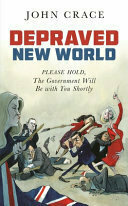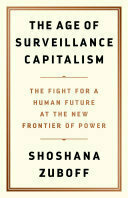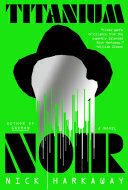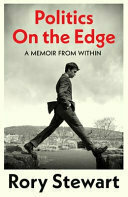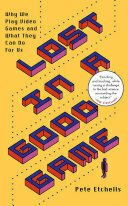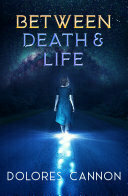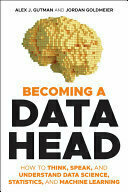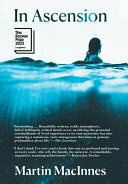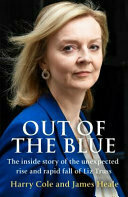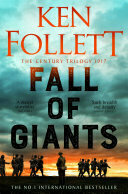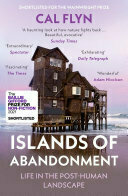Stop generating, start thinking: Arguments against letting Claude Code et al just blindly do your whole job for you.
Recently I read:
Write about the future you want: “If complaining worked, we would have won the culture war already.”
The enshittification of American hegemony: Countries as platforms.
Year in books for 2024
Here are the books I finished reading in 2024.
📚 Finished reading 1Q84 by Haruki Murakami .
I scraped this one in on the last day of 2024. Anything for my book target (which I still failed).
This is actually a trilogy, 3 books in one, although I’m not sure I’ve ever seen them sold in separate volumes. This makes it very long; around 1300 pages depending on your edition. But it made enough of the “best books” lists in the past that I forced myself to not be put off by that fact.
Our heroine, Aomame, climbs down a highway’s emergency staircase in order to try and get out of the traffic jam and make her rather unusual business appointment. But she descends into something a bit more unusual than your typical road. The world shifts a little, almost unnoticeably at first - but one night she notices that she’s looking at a sky with two moons in it. It’s no longer the standard world of 1984 that she knows, so she switches out the 9 and christens her new locale, a world filled with questions, as 1Q84.
This made me realise that I had misread the title for the longest time, thinking it said IQ84. Whoops.
The year was apparently picked as a deliberate call-back to Orwell’s extremely famous novel 1984. Some parallels are there, but presented in an entirely different way, subtle enough to miss. There’s a powerful and secretive force controlling the world in both - Big Brother vs the Little People. History is rewritten. Most people don’t seem to realise what’s going on, that something is different to what is presented on the surface. Our two protagonists are deeply in love but kept away from each other. IQ84 even directly Orwell’s work at least once. But IQ84 is less obviously a work of political dystopia, and it ends a lot more hopefully. If you hated 1984 you could still easily love this.
Back to the story: Tengo is a guy she went to primary school with and hasn’t seen since, despite them both feeling a special connection with each other. He also finds himself in this new world. He’s a writer and find himself involved in a cunning plot to rewrite a story created by a 17-year old girl called Fuka-Eri, who has an association with a cult called Sakigate, such that it wins her a literary prize.
Of course Aomame and Tengo slowly find themselves drawn together into each other’s lives and plot lines. IQ84 can be a surreal world, where nothing is quite what it seems, and seeming coincidences abound. Most people haven’t noticed. But these two have.
It’s a pretty epic tale, and not just in page count. I found it highly gripping, very imaginative and enjoyed feeling the mystery along with the protagonists. The language is of a somewhat unusual style, with repeated phrases that somewhat stick out as slightly unnatural. The book is a translation so perhaps it’s that, but I wouldn’t be surprised to learn that it’s deliberate. I found it novel and refreshing.
I understand that the ending has left some readers unsatisfied, and sure, there are fundamental curiosities left unresolved. But to be honest I’m not sure how one would neatly sum up this grand adventure of magical realism in any satisfying way. Perhaps sometimes we just have to live with mystery. I’m very glad to have experienced it.

'The top 10 hottest years on record have happened in the last 10 years'
Add 2024 to the list of years where humanity didn’t do much about the impending climate catastrophe.
From The Guardian:
The organisation said the past year was set to be the warmest on record, capping a decade of unprecedented heat fuelled by human activities and driving increasing weather extremes, while greenhouse gas levels continued to reach new highs, locking in more heat for the future.
Such that:
The top 10 hottest years on record have happened in the last 10 years, including 2024
Although ‘impending’ is probably the wrong word for something that is already contributing towards the killing of thousands and displacing of millions of people.
The WMO pointed to a new report that found climate change intensified 26 of the 29 extreme weather events studied by World Weather Attribution (WWA) in 2024, which killed at least 3,700 people and displaced millions.
I’m not at all hopeful that we’ll make much progress next year either, given a mix of our apparent natural disinclination to take meaningful action and the geopolitical situation of the world.
📺 Watched season 68 of Have I Got News For You.
This is a comedy political news quiz show I remember from my childhood. Apparently the first episode was an outrageous 34 years ago. It’s I’m not sure when I started watching it but it certainly had the same team captains - Ian Hislop, editor of the Private Eye magazine and Paul Merton, comedian - who have remained consistently and impressively hilarious to me since my initiation into the show.
When I first watched it it was hosted by Angus Deayton, but he had to leave back in 2002 following various sex and drugs scandals. Now they have a different guest host each week. Some are better at delivering the hilarity than others, but the team captains (and show writers) make every episode wonderfully entertaining, bitingly satirical about those who seek to govern over us.
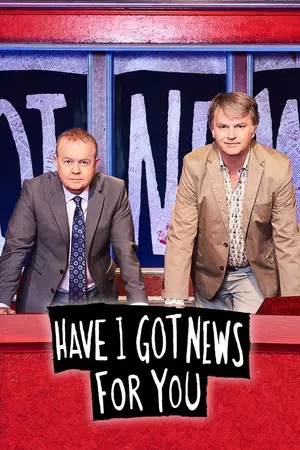
📺 Watched Good Behavior.
Letty, a compulsive thief since childhood, gets out of prison, intending to start a wholesome new life with her child, which due to her past escapades she was not legally allowed to even see. However, whilst satisfying her urge to steal things she overhears Javier, a fairly compulsive hitman himself, being hired to kill someone’s wife. Overcome in a moment of morality she sets out to prevent that murder-for-hire. Antics ensue as the two of them meet, fall in love and struggle against their self-destructive tendencies.
A mostly gripping drama-thriller. It’s based on Blake Crouch’s book of the same name, which consists of 3 novellas The Pain of Others, Sunset Key, and Grab all about Letty. Which I might have to read, given the show was cancelled after 2 seasons.

Just learned that you can now turn off Microsoft Excel’s previously incessant desire to corrupt your data files by automatically converting your carefully handcrafted data into an entirely inappropriate different type.
Go into Options, then Data, to do this:

The things you can turn off include:
- Remove leading zeros and convert to a number
- Keep first 15 digits of long numbers and display in scientific notation.
- Convert digits surrounding the letter E to a number in scientific notation.
- Convert continuous letters and numbers to a date
If only genetics scientists had waited yet another 3 years before deciding that it was just easier to rename a stack of human genes than wait for Microsoft to do something about the issue given the prevalence of Excel-driven errors in their literature
Edit csv is a very handy tool if you need to make some basic edits to a CSV file on a computer without a nice editor installed. You can upload your CSV (or create it directly on the web), do edits, additions, removals etc. and download again without the format getting messed up.
For this reason it’s useful on computers that insist on opening CSVs in Microsoft Excel - Excel being a tool so bad at dealing with CSVs it forced scientists to rename some human genes just to stop them getting messed up in what for many people is their default CSV tool.

The most popular show on UK Netflix over Christmas was a continuous loop of logs being burned, called ‘Crackling Birchwood Fireplace’.
It features footage of burning wood on an open fire on a loop.
On Boxing Day one of its rivals, ‘Classic Crackling Fireplace’ made the number 3 spot.
Riveting.
I like to prioritise much of my news reading by starting off with what makes the first few pages of a ‘real’ paper.
Ever since The Guardian kind of ruined its nice subscriber-only app ‘Guardian Editions’ by making it a rebranded PressReader app I’ve switched to using the web version of each day’s newspaper when browsing on my phone.
Stories specifically from today’s newspaper update each day here.
PressReader itself isn’t terrible to be clear. I just don’t find it very mobile friendly and loathe that you can’t save or share links easily from it. It’s one of the surprising features that if you’re a member of a UK (?) library you might already have for free. Worth a look if you do.
Doorstep carolling feels weird in the modern era
A common enough Christmas tradition in the UK (and I imagine elsewhere) - in the past anyway, even centuries ago - is to form a group, go and knock at some local randomer’s door, and sing at them. They might even give you a treat or a charitable donation for taking the time to do so, or possibly to encourage you to leave.
Anyway, this is the practice of door-to-door carolling, or ‘wassailing’ if you want to feel like an ancient Nordic.
Annie is right when noting that this feels extremely weird in modern times.
It’s a wild tradition when you think about it. You show up at strangers' homes and… sing at them. They stand awkwardly in the doorway, forced to listen to a few rounds of Gloooooo-ooooo-ooooo-rias before you yell Merry Christmas and release them to the blessed peace of their own home
Possibly almost inconceivably so to the new generation it would seem.
I just described this caroling tradition to my oldest two kids, who are sitting at the table crocheting, playing with Play-Doh, and watching Instagram Reels. They agree: Absolutely unhinged move. Showing up at someone’s house, stranger or friend, to stand on their doorstep and sing a traditional holiday anthem at them.
Although I suppose it could be rebranded as some type of ‘grammable flashmob and at least it might feel a bit more normal. To millennials at least, I’m too old to know whether flashmobs are also old and passé to the newest generation du jour.

📚 Want to read: Proof of Spiritual Phenomena by Mona Sobhani, On the Edge by Nate Silver and The Great Post Office Scandal by Nick Wallis - all books generously bestowed upon me this Christmas.

📚 Want to read: Mood Machine by Liz Pelly.
I’ve a feeling this book might reinforce my fears that the big streaming services like Spotify are…not good for music. The medium is the message etc.
Councils spend over £100 million trying to avoid providing special educational needs support
From the Guardian:
More than £100m was spent last year by local authorities and the government on failed efforts to block support for children and young people with special educational needs in England, according to analysis by the Guardian.
A considerable amount of resources are being deployed to avert the duty of providing support for children with special educational needs by councils. But most of the time when their decision is appealed it is later over-turned, meaning they have to pay it and any costs of contesting it in any case, rendering the actually entirely unproductive even on its own terms. Councils won just 1.2% of these cases during 2022-2023.
Per the Independent Provider of Special Education Advice:
It’s hard to avoid the conclusion that local authorities must calculate, at some level, that it costs them less to contest tribunal appeals, even if they lose, than to provide every child and young person with what the law entitles them to as a matter of course – because the majority of families don’t [or] can’t appeal.
And at a time where the services are needed more than ever. As the budget for other types of support have dwindled, a lot more families are applying for and getting these education, health and care plans, which end up being the only way to support their children through education. Nearly 1 in 19 children aged 5-15 currently have such a plan.
Apparently King Charles isn’t a great fan of Dairy Milk.
Chocolate maker one of 100 previous suppliers to royal household to be stripped of accolade under King Charles
Or Pot Noodles.
Another big brand missing from the list is Unilever, which manufactures goods including Marmite, Magnum ice-cream bars and Pot Noodles.
It’s hard to imagine being the king and not having my servants bring me several Magnums a day.

Charity is a cold grey loveless thing. If a rich man wants to help the poor, he should pay his taxes gladly, not dole out money at a whim.
Clement Atlee - or perhaps it was Francis Beckett summarising Atlee’s views in his biography?
🎶 Listening to some modern-day Christmas music: December’s Here by New Found Glory, Punk Rawk Christmas by MxPx and Let It Snow Baby…Let It Reindeer by Reliant K.
After realising that all the good Christmas songs seem to have been written in the last century, and not all that near the end of it, I went on a search for decent ones written in the past few years. Or at least this century.
December’s Here is a post-pandemic issuance, coming out in 2021. “Somber Christmas” celebrates that, if nothing else, Christmas 2021 was an upgrade from the previous year’s (lack of) celebration for many.
2009’s Punk Rawk Christmas is an EP that collects up the annual Christmas-related songs that MxPx sent to members of its fan club between 1998 and 2008.
And 2007’s Let It Snow Baby…Let It Reindeer, apart from being a classic winter witticism, is a take on mostly songs of yesteryear, adapted to various degrees.
The three selections above are all of a general theme, perhaps mostly being potentially described as some degree of pop-punk in style. I’m sure other genres have pumped out the holiday tunes for those who don’t enjoy this one.

📚 Want to read: Steadfast Self-Hosting by Adam Monsen.
Sounds like it may be a decent intro to the noble art of not needing to rely on the whims of other people’s clouds to maintain your digital life.
I’m sure this is supposed to be festive but it feels somehow ominous to me.

Hope it’s not the return of the Gingerdead Man.
🎥 Watched The Devil Wears Prada.
Only 18 years after its release, which if I vaguely remember at the time was something of a phenomenon, at least in my circles. And somehow it was nothing like I expected.
Starring wannabe serious journalist, it’s Emily in Paris, except it’s only Andy’s extraordinarily harsh boss that thinks she’s called Emily. It’s Ugly Betty, with similarly mean harassment of the main character.
Andy accidentally chances her way into the extremely difficult job of working for an extremely difficult fashion magazine boss, a subject that she knows and cares nothing about, at first at least.
Improbably it may be, but it seems that it’s based on a certain amount of reality. The film is adapted from the book of the same name. The book’s author, Lauren Weisberger, was in fact the lowly assistant of real life Anna Wintour, Vogue magazine’s editor in chief.
Wintour developed a reputation for being “icy and scary and fabulous” and was given nicknames such as Nuclear Wintour and Wintour of Our Discontent
Whilst Wintour couldn’t even remember who Weisberger was at first, Miranda Priestly seems to be rather based on her. Wintour had a similar hierarchy of assistants that were expected to work like nothing else matters in life, and much of the stuff they are shown to endure in the film seems to have happened for real, a couple of examples, as reported by E!, below.
Asplundh, who started as an intern at Condé Nast in 1993 and was hired to be Wintour’s second assistant one month later, revealed that Wintour addressed her using the first assistant’s name when she first began working at Vogue.
And Asplundh said she was told not to leave her desk, even to go to the bathroom, if the other assistant was not around—just like Andie

📧 Reading the Liner Notes newsletter.
These days I usually avoid music streaming services. Partially because I’m old and/or stuck in my ways enough to want to permanently own things I like, and partially because most of these services feel like they’re generally bad for the future of the music industry itself.
But one downside of doing this is that it’s more of an effort to find new music from new artists I might be interested in. There’s not even a chance of a not-terrible algorithmic recommendation on tap.
Of course it’s no more effort as it was in the pre-Spotify era of course, but still, it requires more than pressing a “play me music” button and hoping for the best (whilst expecting the worst). The afore-mentioned newsletter is one such solution.
It’s written by Jason Tate, who runs chorus.fm, a site well worth a browse if interested in news, reviews and a community of music fans. He was the CEO of AbsolutePunk back in the day. Our tastes would appear to overlap some, so hearing what he’s been listening to, what he likes and a bit of the misc of his life in general is a good time.
Moderating Facebook is giving their less privileged workers PTSD
One of the dirty secrets of modern big tech - in this case those companies running the large social media sites - is how much low-paid human work goes into providing you the “experience” they offer. And how damaging some of this work is to the people who do it.
Today’s Guardian reports on the plight of over 140 Facebook moderators. These are the people - yes, it’s not all algorithmic - who are instructed to look at posts deemed to be potentially infringing Facebook’s policies on acceptable content to decide whether to keep them or remove them from display.
It’s making some of them very ill.
More than 140 Facebook content moderators have been diagnosed with severe post-traumatic stress disorder caused by exposure to graphic social media content including murders, suicides, child sexual abuse and terrorism.
Then there’s generalised anxiety disorder and major depressive disorder to add to the mix.
Funnily enough, spending hours a day looking at the worst content humans manage to produce isn’t doing them any good.
The images and videos including necrophilia, bestiality and self-harm caused some moderators to faint, vomit, scream and run away from their desks, the filings allege.
It’s in the news due to a lawsuit some of these moderators are bringing against Meta. After all:
In any other industry, if we discovered 100% of safety workers were being diagnosed with an illness caused by their work, the people responsible would be forced to resign and face the legal consequences for mass violations of people’s rights.
But instead we continue onwards, exposing our fellow humans to dangerous work so that we can organise insurrections and commit genocides in between the cat pictures et al.
Just discovered Amazon Prime Gaming. If you are one of the huddled masses with Amazon Prime then you probablu already have access to this. You go here to set it up. It seems to work with non-US Prime accounts despite the .com URL.
Once it’s set up, you can play a few cloud games there and then, as well as claim several free games. These apparently change over time. Most of these seem to end up in your gog.com account, but others are linked to Steam, Epic or other platforms (on the condition that you let Amazon connect to your account).
Right now there’s quite a few. This morning the list of games you can get for free seems to be:
- Space Hulk: Deathwing
- Neverwinter Nights
- Baldur’s Gate
- Baldur’s Gate II
- Necromunda: Hired Gun
- Spelunky
- The Outer Worlds
Mega Man 11 and Warhammer 40000: Dawn of War II are available to play online.
Noticed that Mimo, one of the ‘Duolingo but for coding’ educational apps I sometimes use, has started integrating the use of LLMs into its lessons, even on their free plan.
Whilst I don’t know how much we know yet about chatbot usage affects learning outcomes, and LLMs sure have their problems in general, it does at least reflect the tools I imagine most (?) professional coders use.
Sometimes the questions will specifically request that you ‘ask AI’.
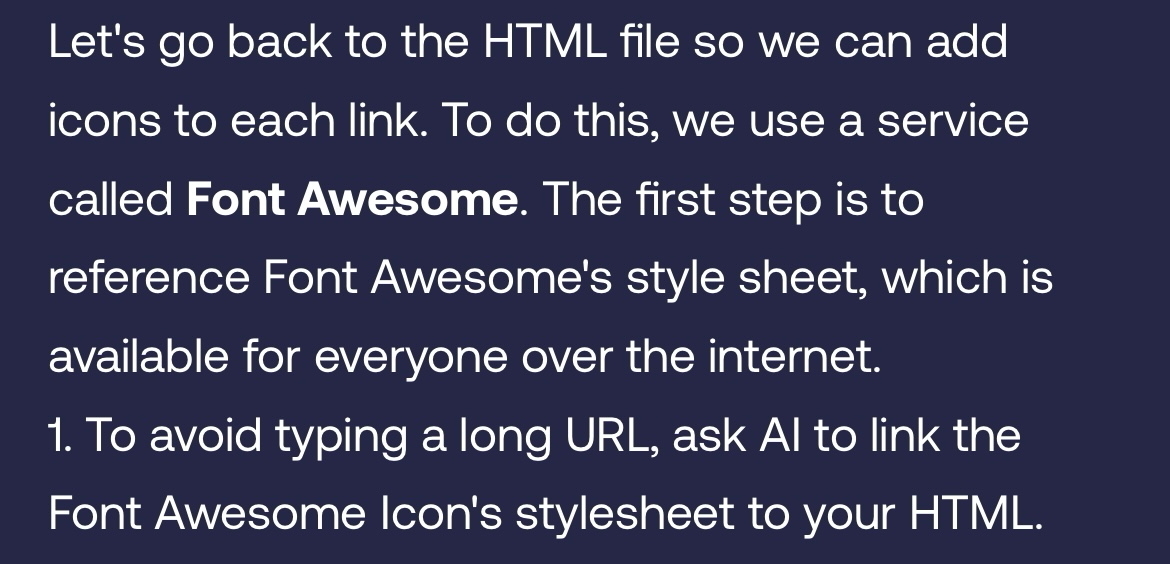
You do this via an integrated AI, which has the typical chatbot interface with the addition of an ‘explain this answer’ button.


📚Want to read: Julia by Sandra Newman.
George Orwell’s 1984, but told from the viewpoint of Winston’s love interest, Julia.
Syrians celebrate the end of the Assad family's unimaginably cruel regime
The 53 year long father-and-son Assad regime in Syria ended a few days ago, much to the fervent delight of much of the population of that country. After an amazingly rapid offensive against government troops, led by a coalition led by Hay’at Tahrir al-Sham (HTS), Assad fled. He sought, and got, asylum in Russia, a country that had previously provided military support to the Syrian regime. But the rebels rightly figured that Russia and other previous Assad-supporting weapons-providing governments such as Iran were distracted with their own conflicts. Many of Assad’s soldiers discarded their uniforms and stood down. Countless prisoners were freed. The palaces were taken over. And people celebrated.
Families searched the prisons, including the infamous Sednaya prison known as the “human slaughterhouse”, for the innumerable political prisoners taken and tortured by the regime. Some were reunited. Some unfortunately will never be; morgues of tortured bodies were found. There’s also the numerous “disappeared” citizens that it feel unlikely will ever be found, alive, or more likely, otherwise. An estimated 300,000 deaths and 100,000 disappearances occurred since 2011. Half of the country had been displaced from their homes, with most of them attempting to leave for a safer country.
It’s the start of a brave new chapter in the history of the country, although what comes next is uncertain and causing some consternation for some. The dominant group, HTS, is Islamist in a religiously diverse country - and far from historically blameless when it comes to respecting human rights - although they have made comment that they intend to run the place for all. But first we - and especially those who lived under Assad’s appalling regime - can celebrate the fall of a cruel and inhumane dictatorship that led to nothing but tortured misery for many of its citizens.
“The feelings, they’re indescribable,” said Mohammed Ahmad, a resident of Kafr Halab, in northern Syria. “I am angry, I am happy and I am sad. But now that the regime has fallen, I can rest.”

